Let us go back to the very beginning, what inspired you to start doing this?
In 2015, I sailed on my boat to Greece with my girlfriend, and during those weeks, we discussed what we could do to help if we came across a migrant boat. We realised that we were limited to how much we could do because we only had six life jackets, compared to Lifeline that has 800. We also had a small lifeboat for six people and a dinghy that could take 20.
The next year the first big wave of refugees came to Europe by boat. In the autumn of 2016, I decided to see what the reality was at sea, because there were statements saying that they were all smugglers.
I decided to go and see for myself. In April 2017, I went on my first mission, and so far I’ve been on six, because what I’ve seen was so tragic that I decided I would do my best to help. All the organisations are always on the lookout for professionals, especially in mechanics, doctors, and nautical personnel.

Do you do this on a full-time basis, or do you volunteer your time when you are available?
I sold most of business at the end of 2008, so I have plenty of time. Well not really plenty of time, but I have a lot of time to spare. I am available whenever a captain is needed.
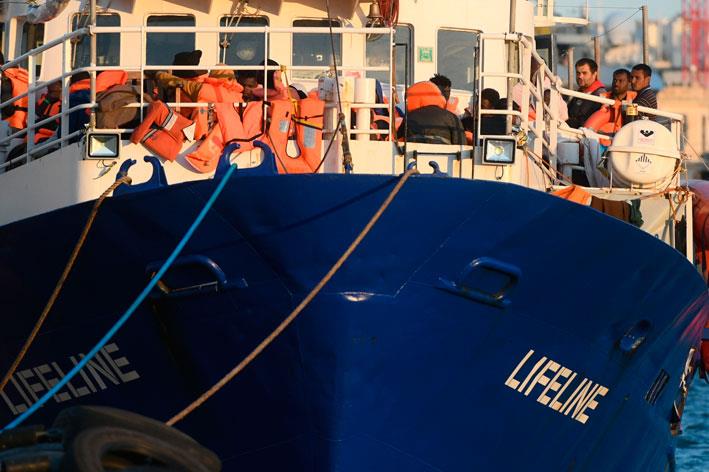
With regard to the crew and how it’s made up, is it always the same people on every mission? Or is it done on a mission-by-mission basis?
It’s mostly done on a mission-by-mission basis, but there are always people you meet for the first time on a boat and find that you work well together. So you try to do the next missions with the same people because you feel safer and more confident when you work with really competent people.
For example, I did all my missions with Martin as a first officer. We are a really good team because we know each other very well. When he is on the bridge, I sleep like a baby in my bunk bed. He trusts me, and I trust him.
It is important that you have people with experience in head positions. On this particular mission, we were all experienced people. We had a heart surgeon on his first mission, a nurse, four paramedics, engineers, a fire fighter, and of course the crew; it was the best mission I did.
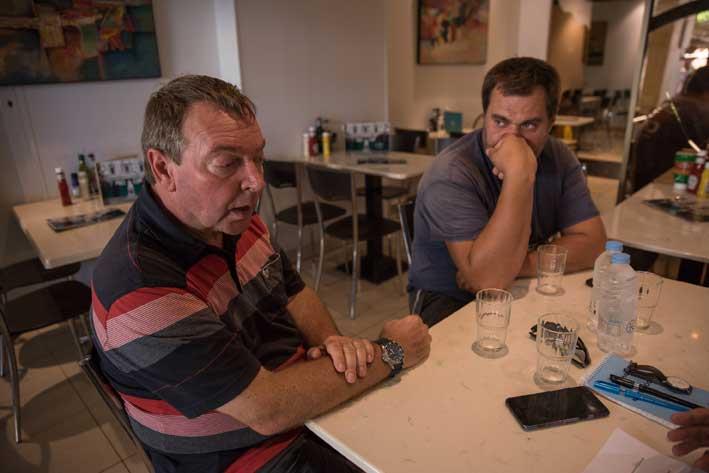
Do the people that apply always tend to have experience? Do you sometimes provide training to people who want to help?
Yes, before we leave the harbour we always do a lot of training. But training in the harbour is one thing, but doing the real thing outside is another. We leave the harbour as a crew; we come back as a crew. We stay together from the beginning of the mission to the end.

When you are out at sea, what do the conditions tend to be like?
For me it’s not a problem to stay out at sea for two weeks because I had done other missions. I’ve been sailing for a long time and like to live on the ship. I also don’t get seasick, which is very important.
We had so many people suffering from seasickness on board. During the day, the wind was very strong, so we headed into the waves with the wind from behind. You feel the reduced wind speed on the boat as we were going with the waves.
We got the people to sit on the deck, there was no space for them to lie down to sleep but they all had a lifejacket. We went against the wind and against the waves back to Malta. It was very hard thing to do.
I would like to see how politicians would deal with these conditions.

Where does the funding for the NGO and the missions come from?
Funding is a really big problem, and it’s also a lot of work. I am one of the fundraisers, and have managed to fund the last two missions.
(First Officer Martin) I was at a concert for 16,000 people and only managed to collect €40 in two or three hours.
(Captain) I ask artists and big companies. I do not ask for Mission Lifeline, but personally. I write them a letter, and in the first sentences, I explain why I chose him or her for their kindness. I tell them that I am a captain of such a ship, and why I ask for money or materials.
This was for the sixth mission. For the first five missions we were not able to sail because we had no money. We had money to maintain the ship for it not sink in harbour. We could pay insurance, fees and gas for the generator, but not for a mission.

Who tend to be the biggest contributors?
Some artists donate money. We also work with an engine oil factory which gives us all the oil we need. They gave us 800 litres as a donation as well as money.
Apart from the big donations, we also have individuals who donate, maybe around €20 to €100, whatever they feel they can give.
Salvini and others always say that George Soros is funding NGOs. I must say, we would be very lucky to even look inside his chequebook, but up to now, nothing has come up. Maybe now I will try to send Mr Soros a letter asking for funds. Sometimes I don’t find any words for these ridiculous claims.
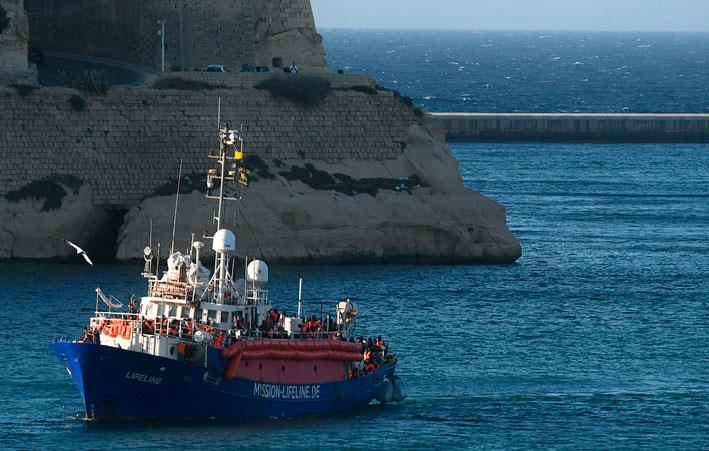
In mentioning Salvini, over the last few years tensions between European citizens and migrants seem to be rising. Why do you think this is happening?
This is difficult because, I have a lot of respect for Italian and Maltese citizens as many migrants arrive in these countries, and the other European countries do not help.
Malta is overcrowded. I first came here 30 years ago. A lot of things have changed, especially the nice island buses which I am very sad about. You cannot leave Malta to deal with all these people alone, it’s impossible.
All countries receive money to help with the increase in refugees, but only some countries actually care for the majority of them. This is not possible. There is no solidarity at this point. This lack of solidarity ruins the idea of the European community.
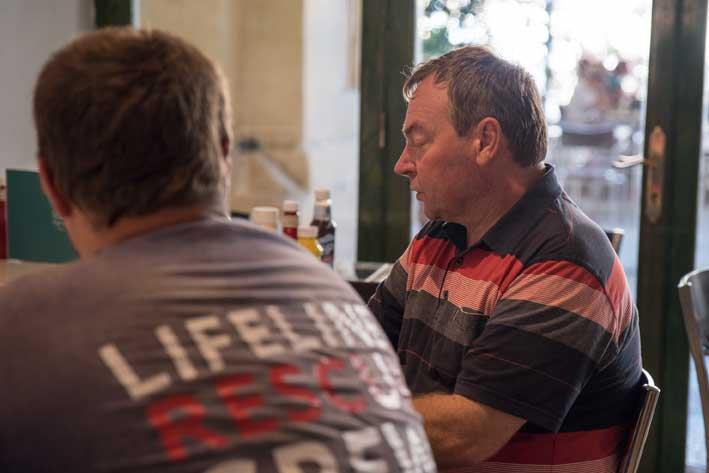
Focusing on the countries that are most vocal on this – when you hear stories like the mass sexual assaults in Cologne on New Year’s Eve of 2015 and 2016, or the riots in Stockholm, does it make you reflect on the fact that some of the people on your boat might not necessarily have the best of intentions?
If somebody commits a crime they should be fined, and if they do not have respect for the law of the country they should be sent home because this destroys the opportunities for other people.
It is important they learn the language as quickly as possible and they must have the possibility to find work with the right conditions. They should not be taken advantage of – like being paid €1 an hour to pick fruit. They should earn a normal salary to be able to support themselves.
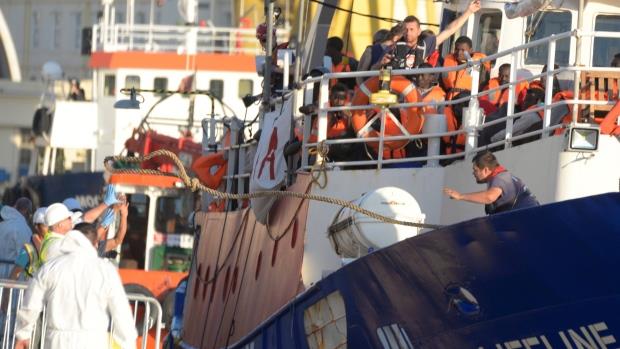
What do you think of the theory that NGOs, the Libyan Coast Guard, and smugglers are working together?
If they had a plan, they would not send out boats without NGOs in the area. If the smugglers had any interest in the people surviving, they would not do that. For them, the job is done when they send the boat out.
We have found boats without engines. The coastguard comes with guns, steals their engines, and sells them back to the smugglers.
Would anyone think I work with these people?

What could the national governments do to improve the situation?
They must give developing countries time to grow. Money should not be given directly to governments as they are too corrupt. It will just end up in banks accounts in Liechtenstein or Switzerland; if we really want to help we should give money to NGOs like Doctors’ without Borders.
It would really help to develop these countries, and the people get proper incomes, then they will not have a reason to run away. They do not run away because they want luxuries like BMW cars or anything like that. They run away because they have no assurances about what will happen in the future. No way to know if they will have food or anything.
European governments all complain about Trump’s wall, but a wall is just a wall. In the Mediterranean, 100 people a day drown and die – men, women, and children. It makes me cry because we are very well equipped to save thousands of lives. I have done six missions. We did not lose one life during any of these missions.
Photos Alenka Falzon/AP